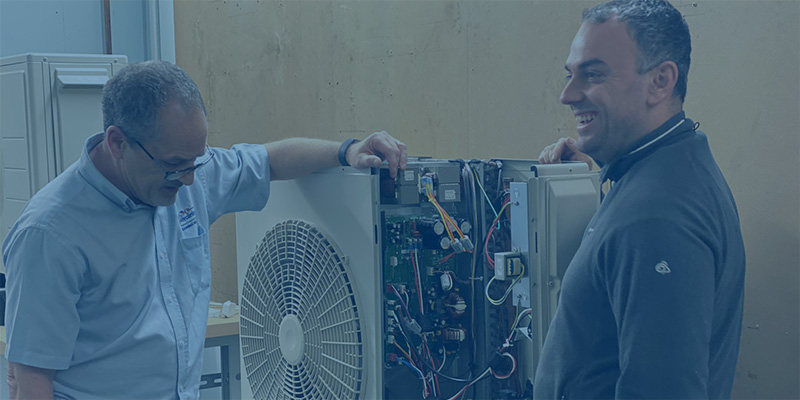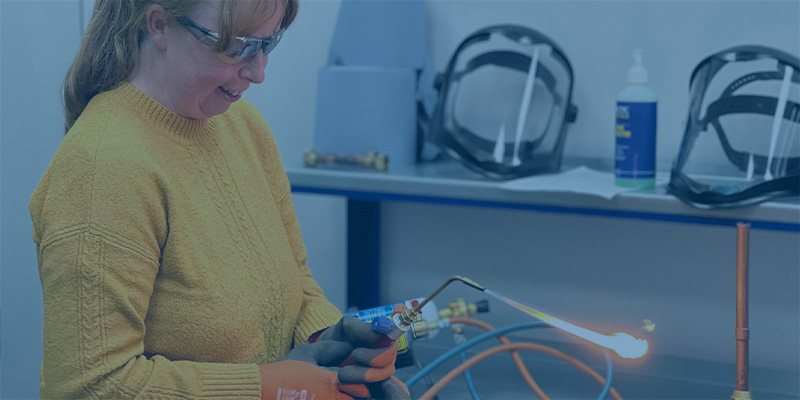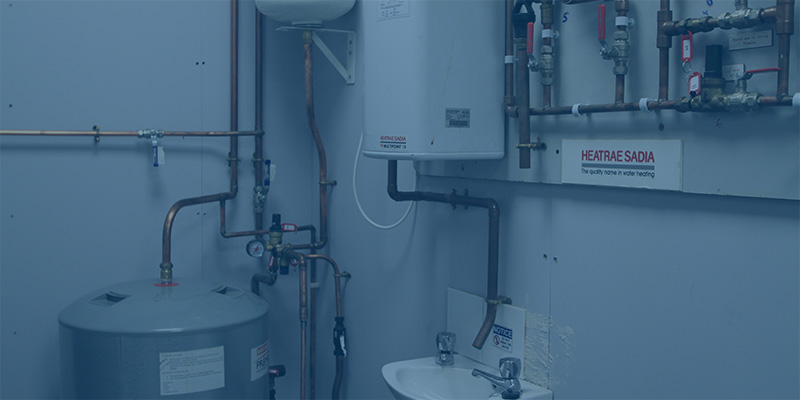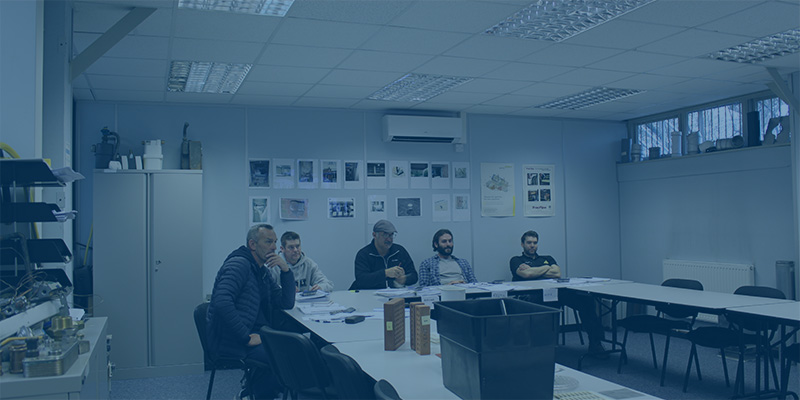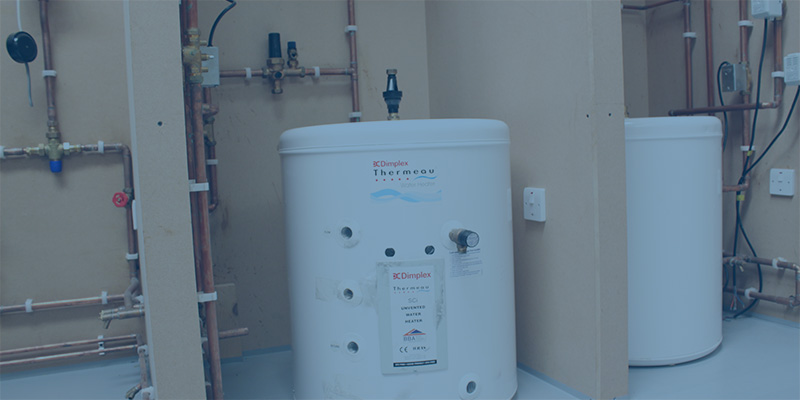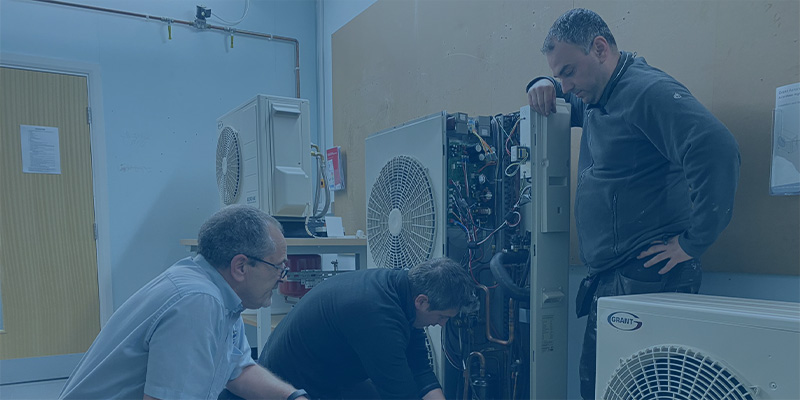
Logic4training delivers the LCL Awards Level 3 Award in the Installation and Maintenance of Air Source Heat Pump Systems.
This regulated RQF qualification is for those wishing to achieve a nationally recognised qualification in the installation and maintenance of air source heat pump systems (non-refrigerant circuits). This qualification is recognised by the Microgeneration Certification Scheme (MCS).
This Level 3 RQF qualification is for learners that wish to demonstrate their knowledge in the installation and maintenance of air source heat pump (ASHP) systems (non-refrigerant circuits).
It is recognised by MCS as a demonstration of competency as required to join the scheme – see MCS Competency Guidance for further information.
Those looking to become MCS registered for the Installation Only of heat pumps will need to hold the WRAS Water Regulations qualification.
NOTE – If you apply for MCS registration for install only of heat pumps you will be required to demonstrate that you have a contract in place with a qualified design engineer who must also be MCS registered as a designer of heat pump systems.
Those looking to be MCS registered for the Installation and Design of heat pumps will need to hold the LCL Awards Level 3 Award in Low Temperature Heating and Hot Water Systems Design in Dwellings in addition to WRAS.
Learn more about MCS certification.
This course covers the following qualification units:
- LCL-R3035: Core unit in Heat Pump Technology (Non-Refrigerant Circuit)
- LCL-R3036: Air Source unit in Heat Pump Technology (Non-Refrigerant Circuit)
Candidates will achieve the following learner outcomes:
LCL-R3035 Core Unit
- The learner will know what a heat pump is, the principle of the vapour compression system and system components.
- The learner will know the different operational characteristics of each type of heat pump unit and system arrangement.
- The learner will know the fundamental principles of heat pump efficiency and design selection that are common for heat pumps. The learner will know the fundamental principles of domestic hot water cylinder selection and system design that are common for heat pumps.
- The learner will know the fundamental principles of hydraulic system design that are common for heat pumps.
- The learner will know the fundamental principles of heat pump controls.
- The learner will know how to plan and prepare for the installation of heat pumps.
- The learner will know the requirements to install and test heat pump systems.
- The learner will understand the requirements to commission heat pump system installations.
- The learner will understand the requirements to handover heat pump system installations.
- The learner will know the requirements for the handover of a heat pump installation
- The learner will know the requirements for routine service and maintenance of a heat pump system installation.
- The learner will undertake fault diagnosis work on a heat pump system installation.
LCL-R3036. Air Source Unit
- The learner will know the preparatory work required for the installation of an air source heat pump.
- The learner will know the common requirements for the installation of an air source heat pump connected to hydraulic emitter circuits.
- The learner will install heat pump units (non-refrigeration units).
- The learner will test and commission an air source heat pump system (non-refrigerant circuits).
- The learner will be able to undertake the non-refrigerant circuit routine service and maintenance of an air source heat pump system (non-refrigerant circuits).
Candidates on this course must hold a valid WRAS Water Regulations qualification in addition to one of the following:
- A Level 2 or Level 3 NVQ or SVQ in plumbing / heating & ventilation / gas / oil – Installation and Maintenance qualification
- A valid Core Gas Safety (CCN1) certificate with CENWAT – must be involved in the installation of heating systems
- An OFTEC Oil certificate
- A valid HETAS certificate (must be for wet systems)
- CPS registration for plumbing systems
- Two years minimum of verifiable experience on the installation of heating and hot water systems.
An air source heat pump extracts heat from the outside air and transfers it inside to heat your home and provide hot water even at low external temperatures.
It works like a fridge, using a mixture of evaporation and condensation to transfer heat from outside to inside a building.
Yes, you need to be certified to fit an air source heat pump. Certification ensures that the installer is competent and that the installation meets industry standards.
Yes, air source heat pumps need regular servicing to ensure optimal performance and longevity. This includes checking the refrigerant levels, cleaning filters, and inspecting the system for any issues. This will need to be carried out by a qualified professional who is MCS registered.
The cost of an air source heat pump course with Logic4training is £545 +VAT but training vouchers and grants are often available subject to availability. Please enquire to find out more.
Yes, MCS certification is crucial for ensuring installations meet industry standards and for enabling customers to qualify for government incentives.
MCS also classify engineers into 2 classifications:
- Installer (doesn’t hold a low temperature qualification)
- Designer & Installer (holds a low temperature qualification or have a contract with a heating designer)
MCS certification demonstrates your commitment to quality and customer care, provides access to government funding schemes, and enhances your marketing opportunities by listing you on MCS and other renewable energy directories.
F-gases, or fluorinated gases, are commonly used as refrigerants in heat pumps.
If you work with f-gases in the UK, an f-gas qualification is a legal requirement that ensures safe working practices and compliance with environmental regulations.
However, in a heat pump, the refrigerant is contained in the compressor. Therefore, heat pump engineers only need an f-gas qualification if they work on the refrigerant components of the heat pump.
FGAS is not included in this course. For more information on our F-Gas courses, click here.

